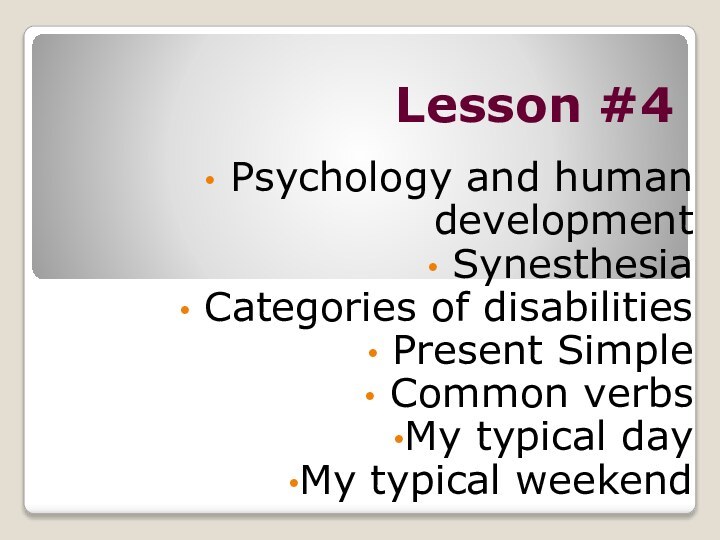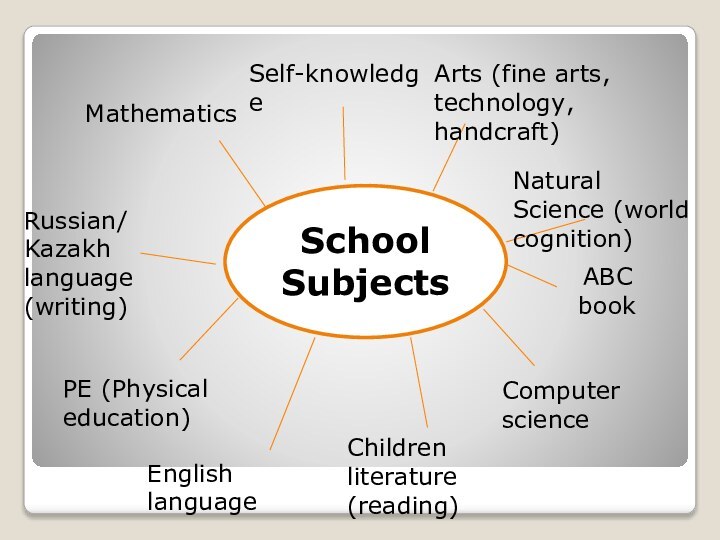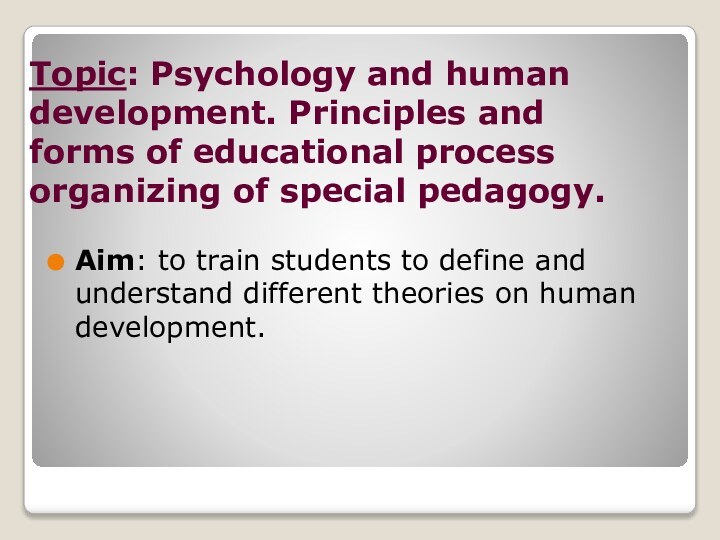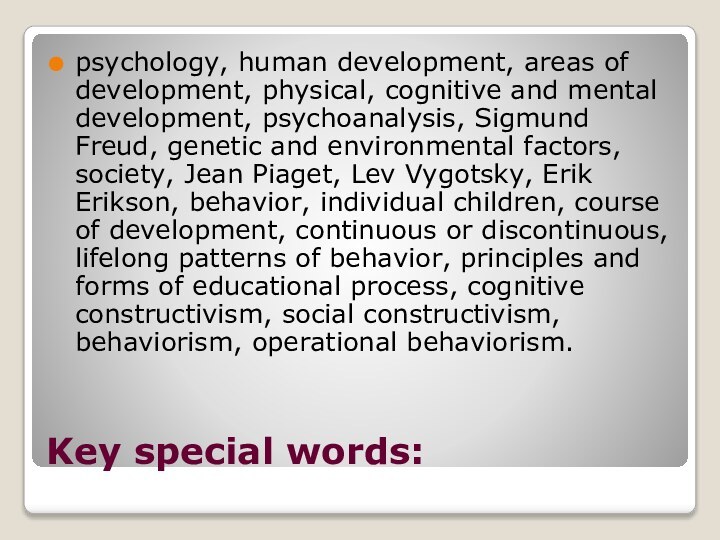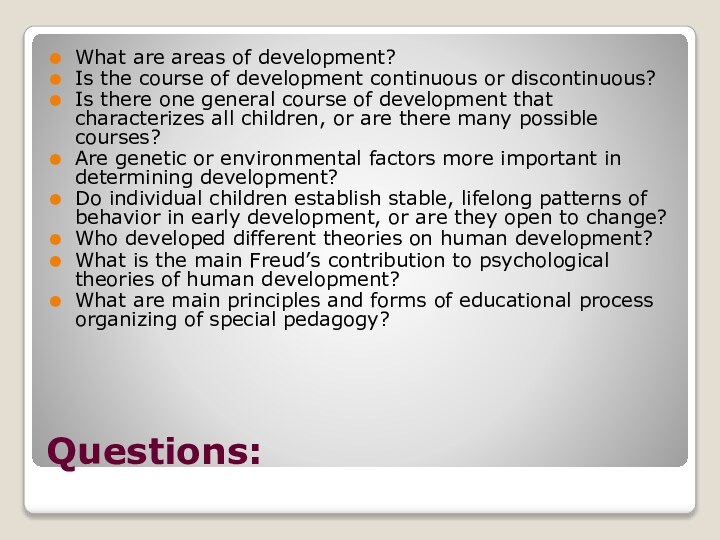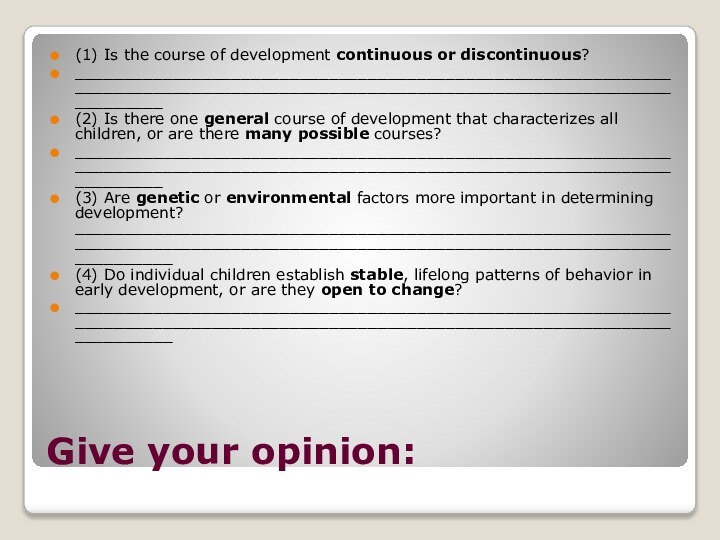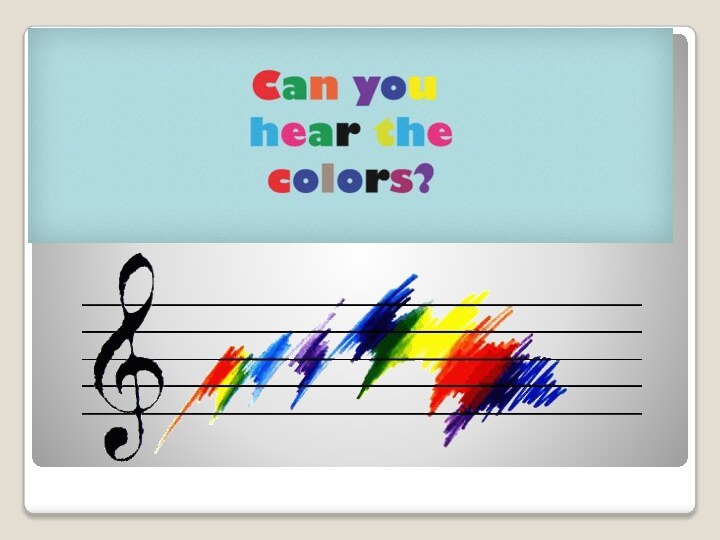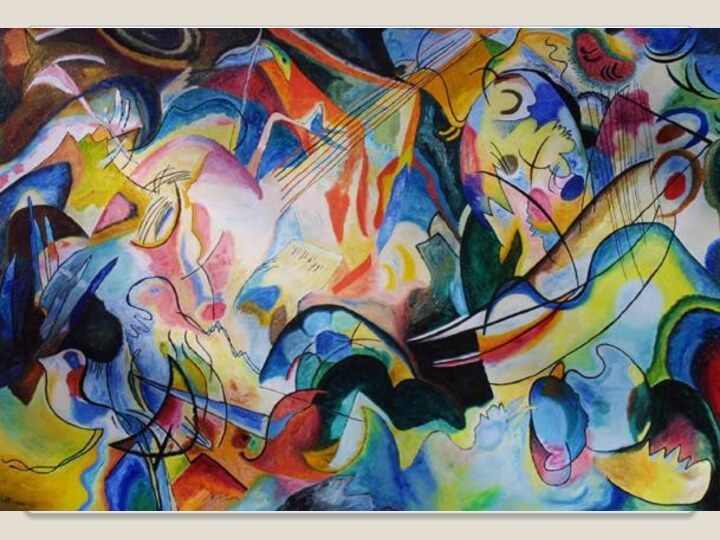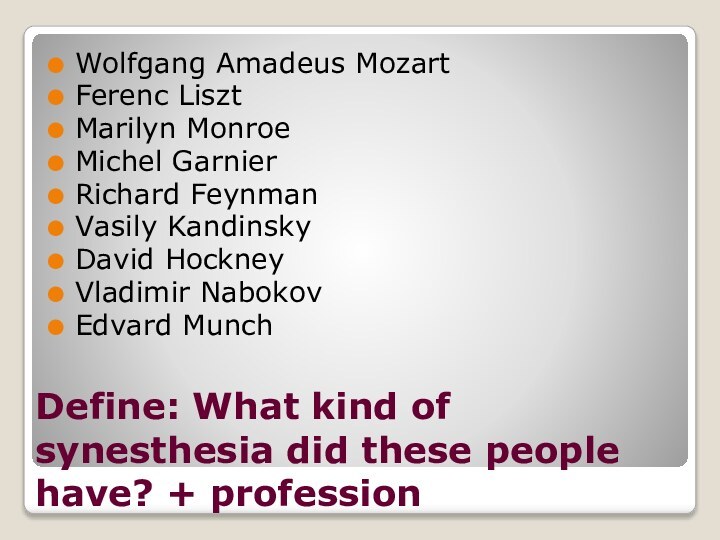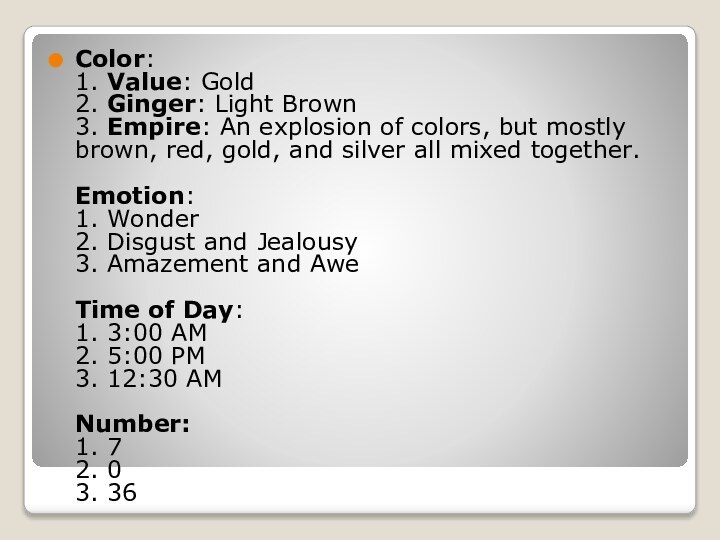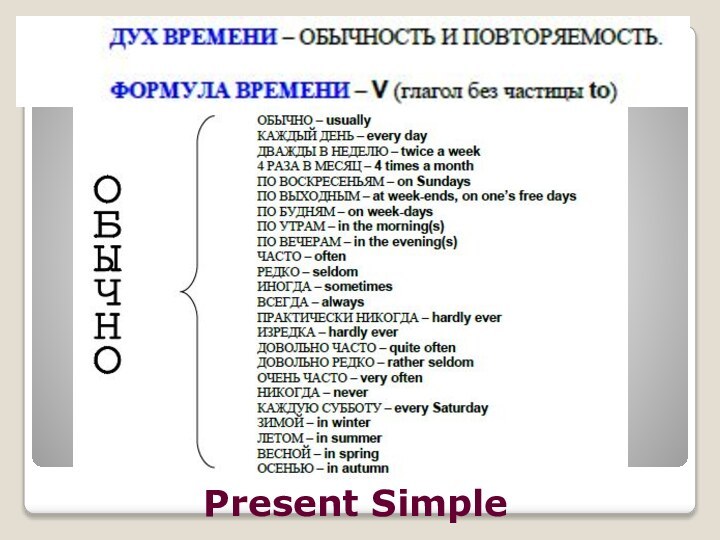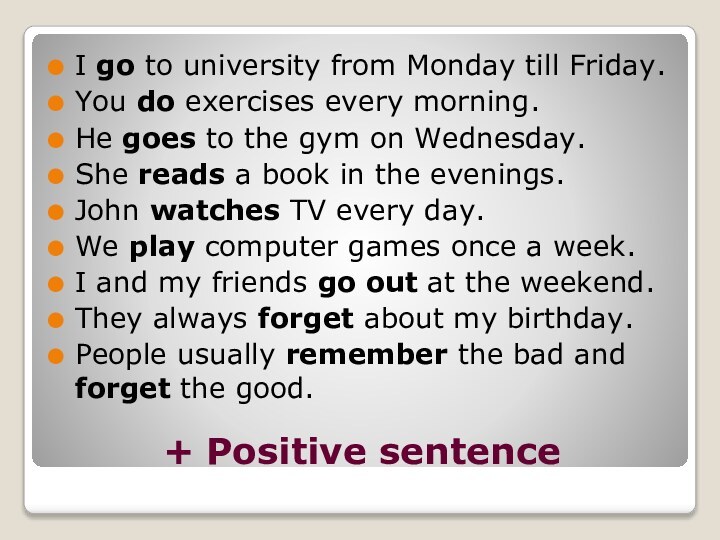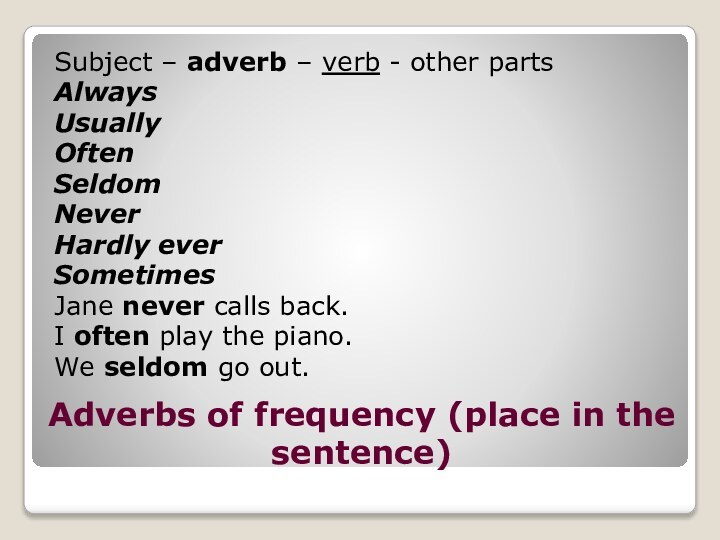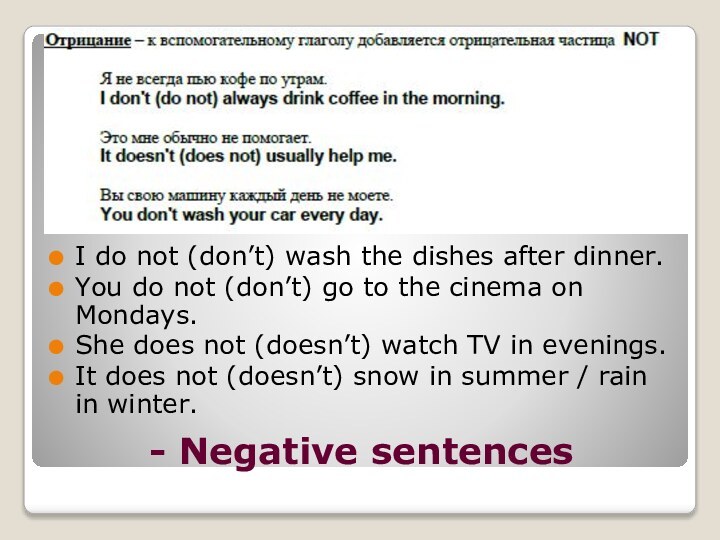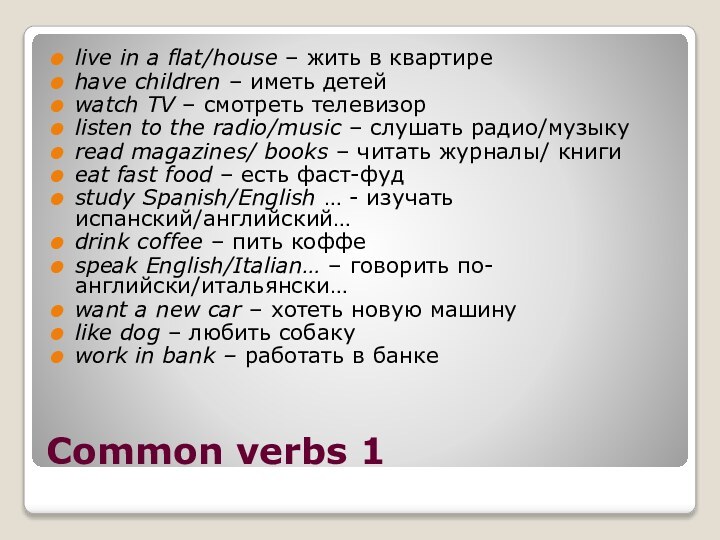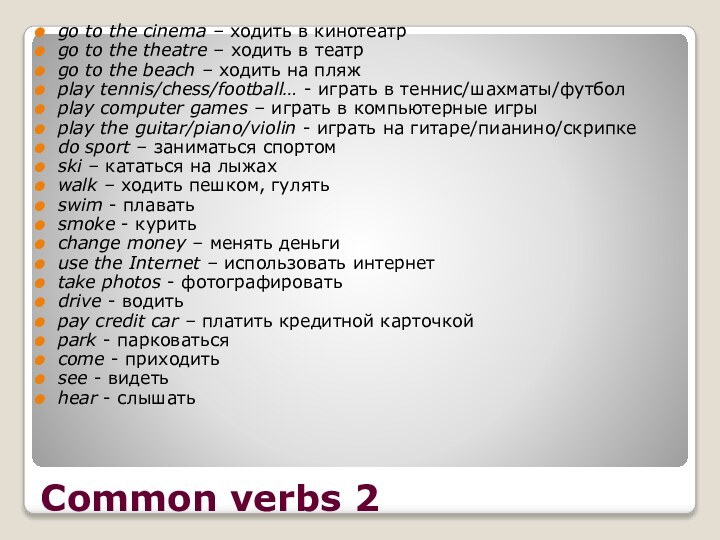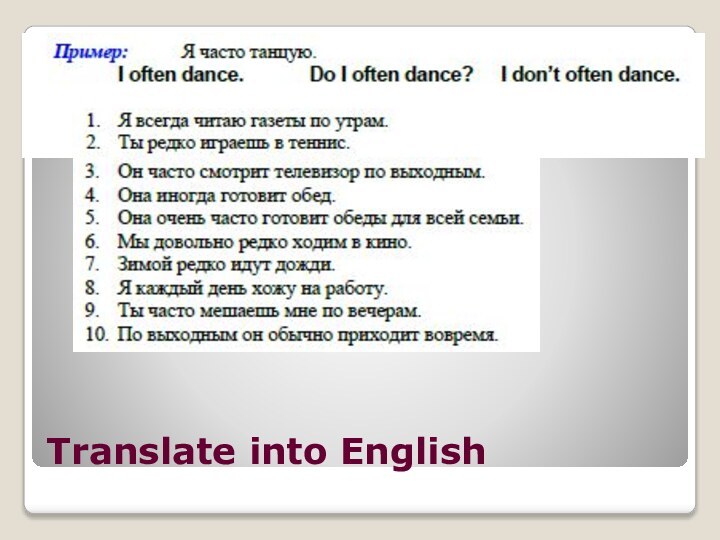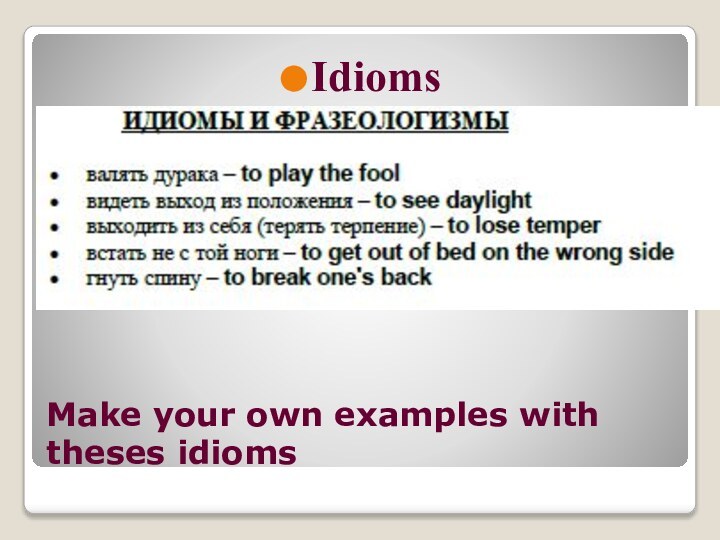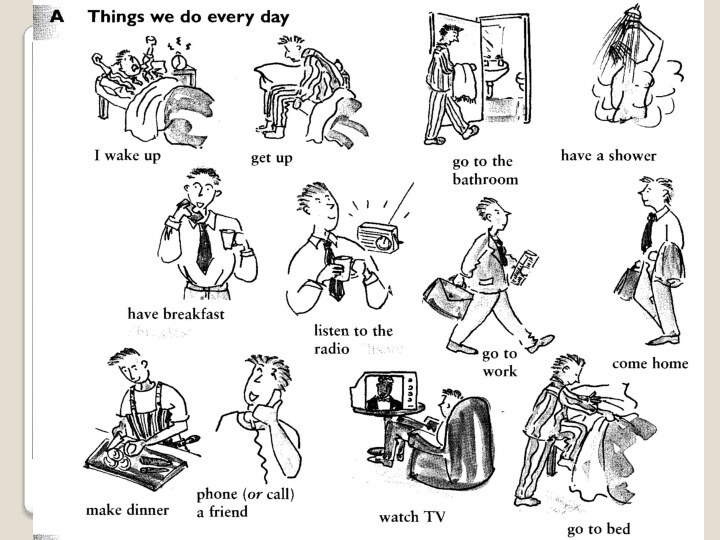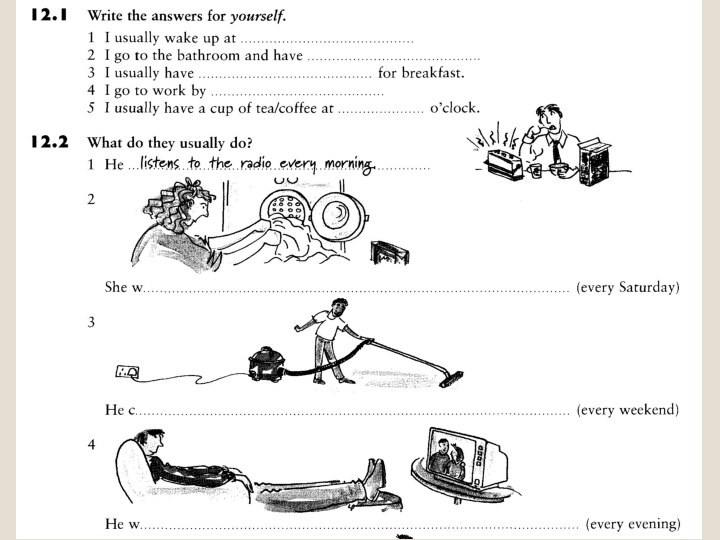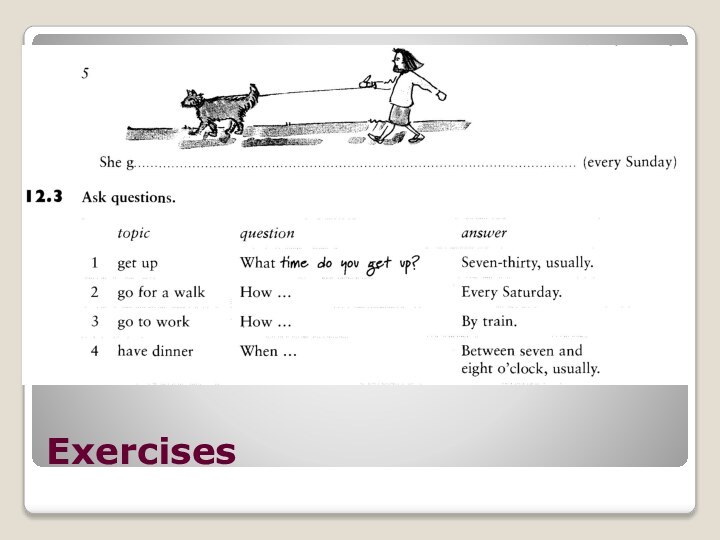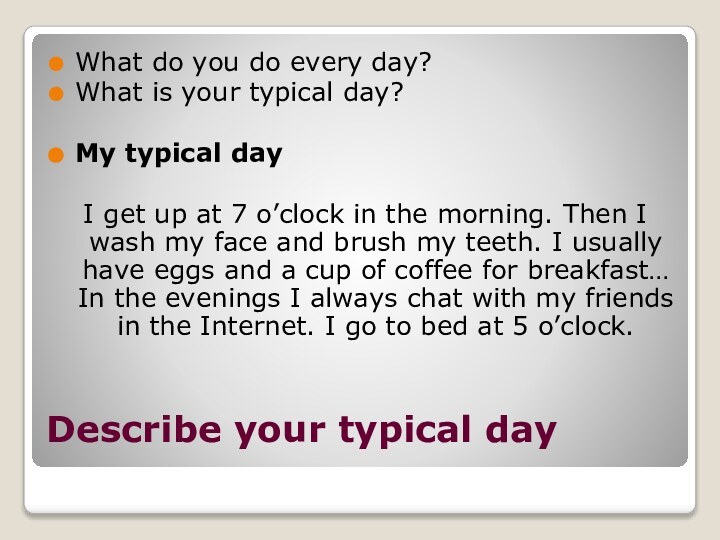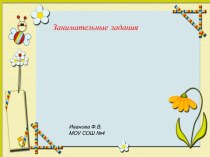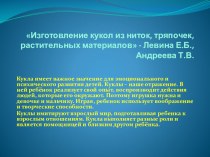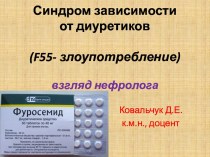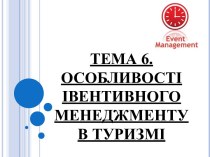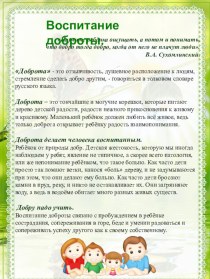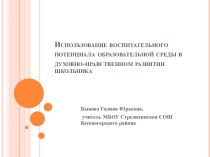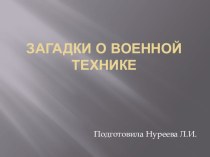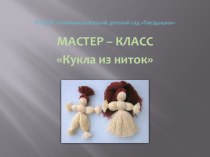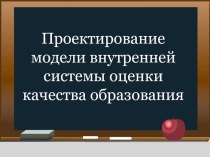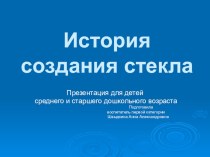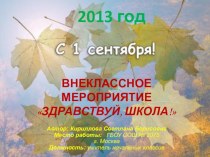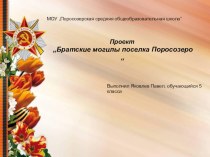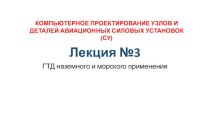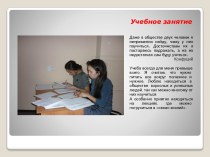Слайд 2
School Subjects
Mathematics
Russian/ Kazakh language (writing)
Self-knowledge
Arts (fine arts, technology,
handcraft)
PE (Physical education)
Natural Science (world cognition)
Computer science
Children literature
(reading)
English language
ABC book
Слайд 3
Topic: Psychology and human development. Principles and forms
of educational process organizing of special pedagogy.
Aim: to train
students to define and understand different theories on human development.
Слайд 4
Key special words:
psychology, human development, areas of development,
physical, cognitive and mental development, psychoanalysis, Sigmund Freud, genetic
and environmental factors, society, Jean Piaget, Lev Vygotsky, Erik Erikson, behavior, individual children, course of development, continuous or discontinuous, lifelong patterns of behavior, principles and forms of educational process, cognitive constructivism, social constructivism, behaviorism, operational behaviorism.
Слайд 5
Questions:
What are areas of development?
Is the course of
development continuous or discontinuous?
Is there one general course of
development that characterizes all children, or are there many possible courses?
Are genetic or environmental factors more important in determining development?
Do individual children establish stable, lifelong patterns of behavior in early development, or are they open to change?
Who developed different theories on human development?
What is the main Freud’s contribution to psychological theories of human development?
What are main principles and forms of educational process organizing of special pedagogy?
Слайд 6
Give your opinion:
(1) Is the course of development
continuous or discontinuous?
___________________________________________________________________________________________________________________________________
(2) Is there one general course of
development that characterizes all children, or are there many possible courses?
___________________________________________________________________________________________________________________________________
(3) Are genetic or environmental factors more important in determining development? ____________________________________________________________________________________________________________________________________
(4) Do individual children establish stable, lifelong patterns of behavior in early development, or are they open to change?
____________________________________________________________________________________________________________________________________
Слайд 7
Synesthesia is a neurological phenomenon where people experience
their different senses as colors.
Слайд 12
When I look at this picture I can
hear (music) …
When hear/ listen to this melody I
can see (colour) …
When I smell this perfume I can see (colour) … or I can hear/ listen to …
Слайд 13
Define: What kind of synesthesia did these people
have? + profession
Wolfgang Amadeus Mozart
Ferenc Liszt
Marilyn Monroe
Michel Garnier
Richard Feynman
Vasily
Kandinsky
David Hockney
Vladimir Nabokov
Edvard Munch
Слайд 14
How to develop creative thinking with synesthesia?
Game: There
are three words below. What is the first colour
that comes to mind? What is the first emotion that comes to mind? What time of day comes to mind? If you had to pick a number to represent these three words, what would it be?
mother
cat
mind
Challenge: Think about how and why you came up with the answers you did. Look at others answers and see if you can think how they would have arrived at those conclusions.
Слайд 15
Color:
1. Value: Gold
2. Ginger: Light Brown
3. Empire:
An explosion of colors, but mostly brown, red, gold,
and silver all mixed together.
Emotion:
1. Wonder
2. Disgust and Jealousy
3. Amazement and Awe
Time of Day:
1. 3:00 AM
2. 5:00 PM
3. 12:30 AM
Number:
1. 7
2. 0
3. 36
Слайд 18
+ Positive sentence
I go to university from Monday
till Friday.
You do exercises every morning.
He goes to the
gym on Wednesday.
She reads a book in the evenings.
John watches TV every day.
We play computer games once a week.
I and my friends go out at the weekend.
They always forget about my birthday.
People usually remember the bad and forget the good.
Слайд 20
Adverbs of frequency (place in the sentence)
Subject –
adverb – verb - other parts
Always
Usually
Often
Seldom
Never
Hardly ever
Sometimes
Jane never
calls back.
I often play the piano.
We seldom go out.
Слайд 21
- Negative sentences
I do not (don’t) wash the
dishes after dinner.
You do not (don’t) go to the
cinema on Mondays.
She does not (doesn’t) watch TV in evenings.
It does not (doesn’t) snow in summer / rain in winter.
Слайд 22
Questions: How often do you …?
Do you like
ice-cream? Yes, I do.
Do they go to the theatre
at the weekend? No, they don’t.
Does she look after her younger sister? Yes, she does.
Does Ted get up early? No, he doesn’t.
When do you usually go to bed?
Слайд 23
Common verbs 1
live in a flat/house – жить
в квартире
have children – иметь детей
watch TV – смотреть
телевизор
listen to the radio/music – слушать радио/музыку
read magazines/ books – читать журналы/ книги
eat fast food – есть фаст-фуд
study Spanish/English … - изучать испанский/английский…
drink coffee – пить коффе
speak English/Italian… – говорить по-английски/итальянски…
want a new car – хотеть новую машину
like dog – любить собаку
work in bank – работать в банке
Слайд 24
Common verbs 2
go to the cinema – ходить
в кинотеатр
go to the theatre – ходить в театр
go
to the beach – ходить на пляж
play tennis/chess/football… - играть в теннис/шахматы/футбол
play computer games – играть в компьютерные игры
play the guitar/piano/violin - играть на гитаре/пианино/скрипке
do sport – заниматься спортом
ski – кататься на лыжах
walk – ходить пешком, гулять
swim - плавать
smoke - курить
change money – менять деньги
use the Internet – использовать интернет
take photos - фотографировать
drive - водить
pay credit car – платить кредитной карточкой
park - парковаться
come - приходить
see - видеть
hear - слышать
Слайд 25
Common verbs 3
arrive at the airport – прибывать
в аэропорт
break your leg – сломать свою ногу
buy ticket
– купить билет
come back from holiday – вернуться из отпуска
find a job – найти работу
learn a language – учить язык
meet a friend – встречаться с другом
rent a car – арендовать машину
say hello/goodbye – поздороваться/попрощаться
stay at a hotel – оставаться в гостинице
call a friend – позвонить другу
get a letter – получить письмо
give a present – подарить подарок
leave the cinema – покидать кинотеатр
lose your keys – потерять свои ключи
send an e-mail – отправить электронное письмо
take an umbrella – взять зонт
tell somebody a story – рассказать кому-либо историю
turn on the light – включить свет
turn off the light – выключить свет
Слайд 27
Make your own examples with theses idioms
Idioms
Слайд 33
Describe your typical day
What do you do every
day?
What is your typical day?
My typical day
I get
up at 7 o’clock in the morning. Then I wash my face and brush my teeth. I usually have eggs and a cup of coffee for breakfast… In the evenings I always chat with my friends in the Internet. I go to bed at 5 o’clock.
Слайд 34
Defectology is divided into: …
Surdopedagogy deals with …
Typlopedagogy
deals with …
Oligophrenopedagogy deals with…
Speech therapy deals with …
Orthopedagogics
deals with …
Complete the sentences
Слайд 35
Who is it? ______________
Where is she from? _______
(name) is from ____________.
Can you describe her?
Слайд 36
Who is it? ___________
Where is he from? _______
(name) is from _______.
Can you describe him?
